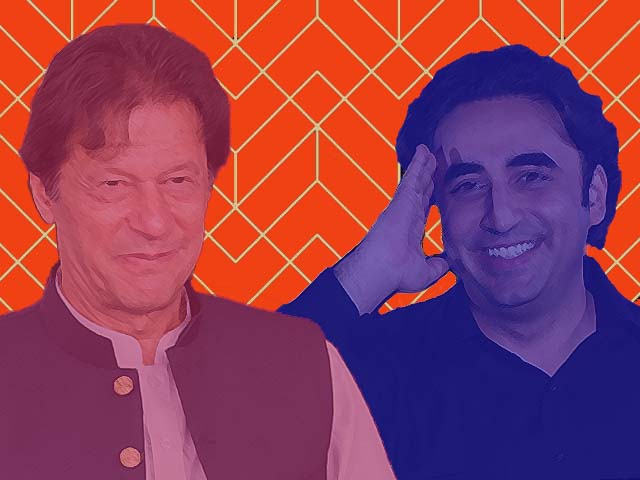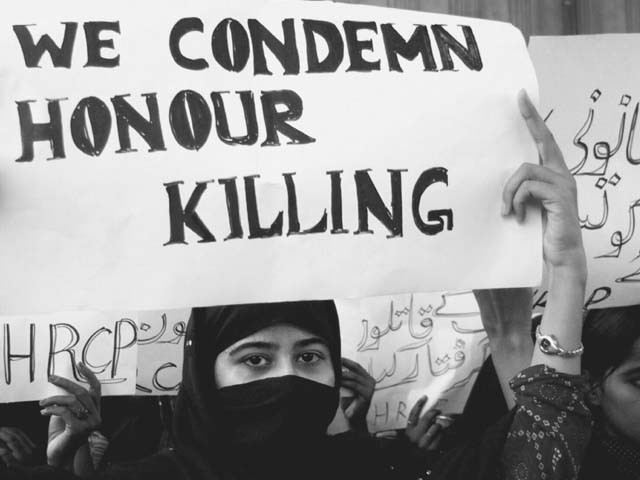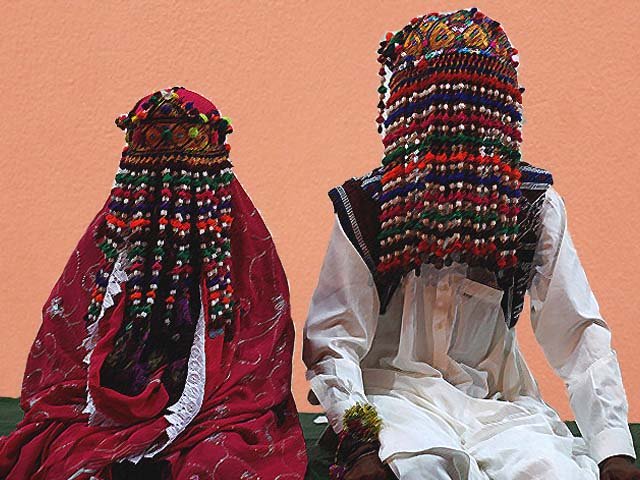
The liberal and the ‘liberally corrupt’
The reticence to be associated with the term is not surprising given the image it has in Pakistan's political lexicon
During Imran Khan’s recent outburst, when he mockingly mimicked Bilawal Bhutto Zardari, he referred to the Pakistan Peoples Party (PPP) chairman as a man who is not a liberal but is instead “liberally corrupt.” Calling an opponent corrupt is nothing new for Imran, however, being branded a liberal today is almost perceived as an affront. Thus, Bilawal swiftly tweeted and declared that he is not a liberal but a progressive and ideologically inclined individual, in his own words “taraki-pasand aur nazriyati.” This begs the question as to what is the barometre by which one gauges liberalism, and if both these leaders do not identify as liberals then what specific ideology is underpinning their political ethos? In fact, quite a few years ago, Imran went so far as to say that the liberals in Pakistan are the scum of the country. Time and time again both leaders have claimed that they are ideological not liberal, but they haven’t stated exactly what ideology they adhere to.
Einstein soul in disbelief because of Bilawal's New Theory | PM Imran mimics Bilawal#PublicNews #PublicNewsLive@pmln_org @MediaCellPPP @PTIofficial @BBhuttoZardari #Bilawal #Einstein #ImranKhan pic.twitter.com/PC0dpczpGi
— Public News (@PublicNews_Com) November 18, 2019
Na liberal hoon, Na corrupt hoon aur Na hi munafiq. Main taraki-pasand aur nazriyati hoon. Aik saal say siyasat main hoon. Tum 70 saal kay burhay ho, 20 saal say selected siyasat kartay aa rahay ho. Agar Imran ki koi pehchaan hai - tau woh U-turn hai, munafiqat hai, katputli hai.
— BilawalBhuttoZardari (@BBhuttoZardari) November 18, 2019
The reticence of political leaders to be associated with the term is not surprising given the image it appears to have garnered in Pakistan’s political lexicon. As a result, instead of acknowledging what the term itself entails or clarifying their own ideological positions, our politicians take shelter underneath other such vague terminologies by identifying as progressives or moderates, yet, ironically, these words could also be used to describe a liberal ideology. Using the term in a derogatory sense or denying that one would want to support its tenants only serves to shrink political discourse in Pakistan and strips it of some much needed nuance.
Currently in Pakistan the ideological lines are so blurred that it is almost impossible to demarcate political leaders into separate boxes based on the ideologies which drive their politics. These ideological forces are ubiquitous and operate independently of our knowledge of them. Mostly people and nations follow these ideologies without consciously signing up for them or endorsing the systems which reinforce them. Hence, these ideologies must be viewed as a spectrum on the political landscape rather than clear-cut binaries. Hence, it would be perfectly reasonable for someone who holds in high regards the virtues of religion to refer to themselves as a liberal at the same time.
This is the middle-ground which our politicians, and our masses, seem to have forgotten. For many in Pakistan, religiosity is equated with bearded zealots while liberalism is associated with the west. Given that there is rarely any constructive debate about the merits and demerits of liberalism in Pakistan, the perception is that liberals are anti-Islam, anti-Pakistan, anti-army, and adherents of a supposed ‘western agenda.’ It is important to realise that if one chooses to be critical of national policies and talks about human rights, civilian supremacy, gender equality and the freedom of speech, among other things, it does not mean that they are doing so at the behest of a foreign agent and have succumbed to a ‘liberal agenda.’ This in turn perhaps leads to the likes of Imran and Bilawal bandying the term about without grappling with what it entails specifically. Rhetorically and academically the concept is completely misunderstood, misused and manipulated by many; hence resulting in a reluctance to be associated with it.
The term liberal can be traced back to the Latin word liber meaning ‘free,’ which is also the root of the word liberty and has informed political systems around the world. I would like to believe that both Bilawal and Imran believe in gender and racial equality, freedom of speech and press as outlined in the constitution of Pakistan, and religious freedom. Both are heads of political parties which endorse democratic rule and believe in protecting the rights of citizens, even if they are not always successful in achieving these aims. Hence, the dislike of the term liberalism seems all the more perplexing.
Perhaps this apparent unwillingness to be associated with Pakistani liberals stems form an inability to tolerate the criticism which emerges from these quarters against the nation’s political leaders. Unfortunately, this attitude exposes their ideological naivety and apparent confusion rather than demonstrating their political maturity. In a world ruled by unregulated and at times irrelevant information, clarity of thought is power. As evidenced by the student movements in the country, the emerging generation of Pakistanis is politically engaged and ideologically driven, willing to wrestle with complex questions. If political leaders fail to engage beyond cursory dismissals of terminologies which they are unwilling to grapple with, then they run the risk of becoming political dinosaurs who only view the world through vaguely defined binaries. If they continue to remain uncertain about which ideological path they are embarking upon, it will not only lead to political uncertainty for them but will ultimately damage the nation as a whole.




COMMENTS
Comments are moderated and generally will be posted if they are on-topic and not abusive.
For more information, please see our Comments FAQ